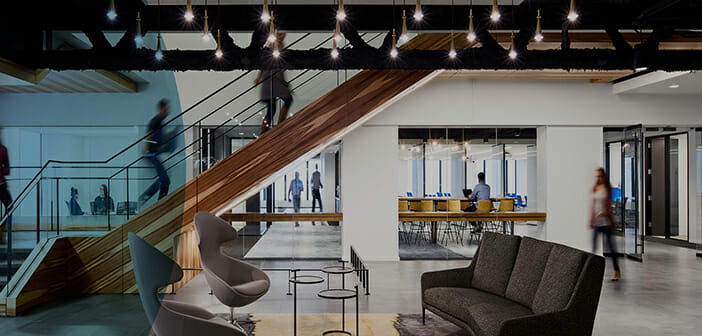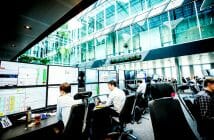This summer, IMC ran its first-ever virtual internship programme. We spoke with two interns, Marcus Beadle, an intern with the Trading team in Amsterdam, and Alex Cummins, who interned with the Technology team, about their experiences. Marcus is a Mathematics Master’s student at Oxford University and Alex is studying for an MEng in Computing at Imperial College London. In part two of the blog, we spoke to the interns about their personal projects, and the role mentoring played during their internship.
How was your internship structured?
Alex: I spent my first week taking part in a trading education programme with the other interns from across the Trading and Technology teams. This was basically a ‘crash course’ on IMC’s role in the markets and was extremely useful as background for the internship – without it, I wouldn’t have known much about the trading systems I was working on, or what the programs I was creating were actually being used for. I found the training sessions quite challenging, so it wasn’t just a case of sitting and listening to someone speak.
Marcus: Challenging is definitely the right word! Coming from a non-finance background, it gave me a lot to think about in a short space of time. But the sessions were very engaging, and there was plenty of interaction between us interns and with the traders delivering the course. It was really useful to have this foundation as my project was obviously very trading-focused – albeit quite theoretical.
I was impressed by the amount of time and resources IMC were willing to invest in teaching us, particularly because a lot of people, like me, were starting from a fairly low knowledge base. It didn’t seem to matter that I had no prior financial experience or really any coding experience.
Alex: After the training week, I moved on to the project part of the internship. The way this works is that everyone is assigned a personal project to focus on under the supervision of a mentor – someone you can ask for help when you need it and bounce ideas off.
What did your project involve?
Alex: Coming from a computing background, there was naturally a strong programming focus to my project. The short version is that I was asked to transfer a volatility calculation from a front-end to a back-end system. Step one was to familiarise myself with the IMC system I was trying to modify. I spent a lot of time with my mentor in the first week getting it running on my computer so I could debug it easily and work out what was going on. As my understanding of the system grew, I was able to have more of an impact and get my code working. You said your project was more research-focused, Marcus?
Marcus: Yes, that’s right. As a relatively pure mathematics student, my degree is largely theory‐based. IMC took an interest in what I’d been doing at university, particularly the fact I was good at abstraction, and designed a project for me that suited my skillset.
I essentially wrote an academic paper on estimating certain parameters of index funds, thinking of them as random variables, that IMC might want to use to inform their trades. This involved reading a range of academic papers to pick out usable stochastic models, which are mathematical models often used in trading and investing. I also needed to get a handle on IMC’s database to be able to calibrate the models and see how consistent the different methods of estimation were when linked to real-world data.
At the end of the project, I had to present my findings to the entire Amsterdam Trading team. It was up to me to make a case for my research, explaining why it was useful and how it could benefit the team. This was the best part: the work I was doing wasn’t artificial in any way; it was about tackling real-life problems that the company has been working to solve.
Alex: I totally agree. There was never a sense of being handed pet projects nobody really cared about. The people I spoke to in the Trading team were genuinely curious about the calculation I was implementing and how it could support their work, day to day. By the time I start at IMC full time in 2022, people may actually be using the system I worked on, and that’s really exciting.
How important was the mentoring you received?
Marcus: Super important! It’s like Alex says: as an intern, you might spend a lot of your time exploring things no one at IMC has worked on before. Your mentor is usually just as curious as you are about the results you may find, the patterns you’re going to spot. In my case, this led to some really interesting discussions. Having a sparring partner to bounce ideas off helped to spur me on to keep pushing for new discoveries.
Alex: Yes, like Marcus, I had a lot of (virtual) one-on-one time with my mentor, Karan. He did a great job of getting me to think for myself, and I found this way of working really helped me to learn and to grow. Rather than just giving me ready-made answers to my questions, he would offer me a series of prompts, and then we’d explore the problem together. This was extremely valuable because it encouraged me to be independent and to develop a problem-solving mindset.
Both Marcus and Alex have since received offers from IMC and will be returning to work full time in the Amsterdam office after completing their studies. If you think you have what it takes to be a summer intern in Trading and Technology and would like to know more about our programmes, please visit our internship page.




